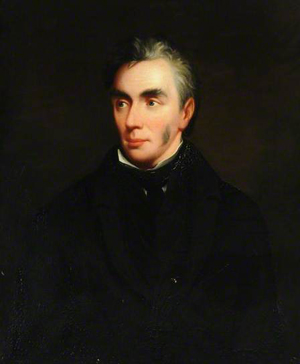Preston Mills
Ebenezer Elliot
The day was fair, the cannon roar'd,
Cold blew the bracing north,
And Preston's Mills by thousands poured
Their little captives forth.
All in their best they paced the street,
All glad that they were free;
And sung a song with voices sweet—
They sung! of Liberty!
But from their lips the rose had fled,
Like "death-in-life" they smiled;
And still, as each passed by, I said,
Alas! is that a child ?
Flags waved, and men—a ghastly crew—
Marched with them, side by side:
While, hand in hand, and two by two,
They moved—a living tide;
Thousands and thousands—all so white!—
With eyes so glazed and dull!
Oh, God! it was indeed a sight
Too sadlY beautiful!
And, oh, the pang-their voices gave
Refuses to depart!
"This is a wailing for the grave!"
I whisper'd to my heart.
It was as if, where roses blushed,
A sudden, blasting gale,
O'er fields of bloom had rudely rushed,
And turned the roses pale.
It was as if, in glen and grove,
The wild birds sadly sung,
And every linnet mourn'd its love,
And every thrush its young.
It was as if, in dungeon gloom,
Where chain'd despair reclined,
A sound came from the living tomb,
And hymned the passing wind.
And while they sang, and though they smiled,
My soul groaned heavily—
Oh, who would be or have a child!
A mother who would be!
"Who is the Poet of the Poor if not me?" asked Ebenezer Elliot. His poems of poverty in the early industrial revolution and his passionate verse calling for reform of the Corn Laws certainly make his work interesting socio-politically. Critics have been less kind about the poetic qulities of his verse. Judge for yourself...
